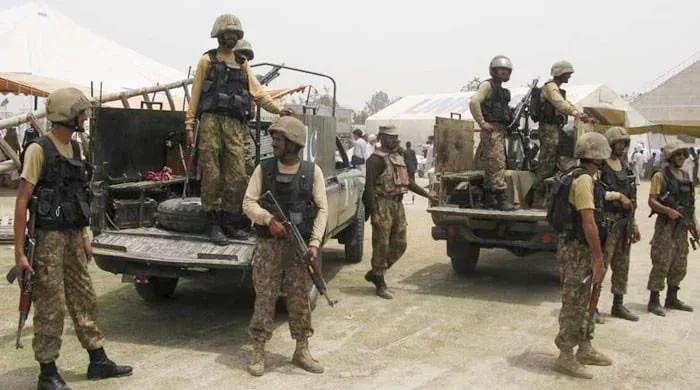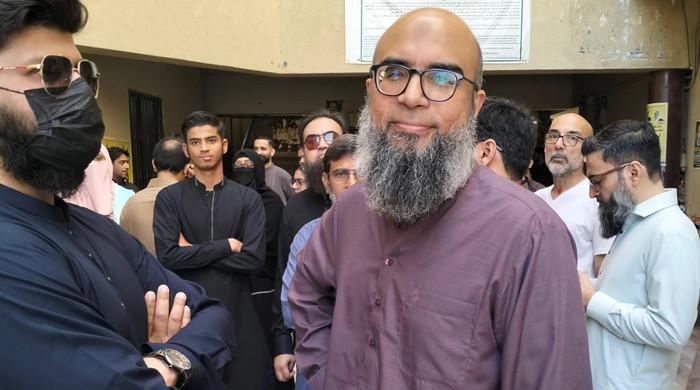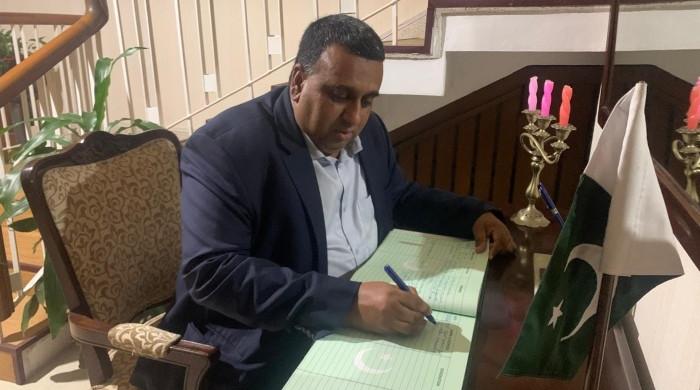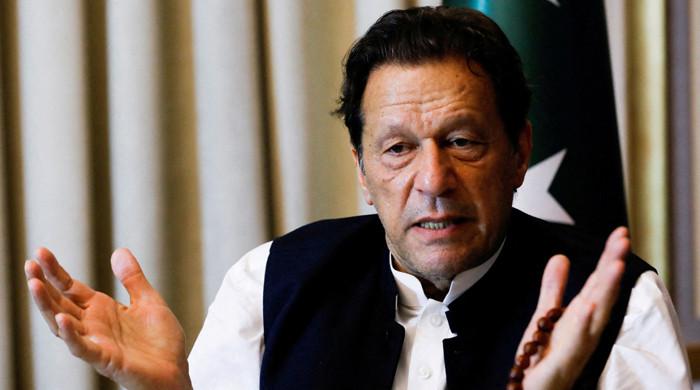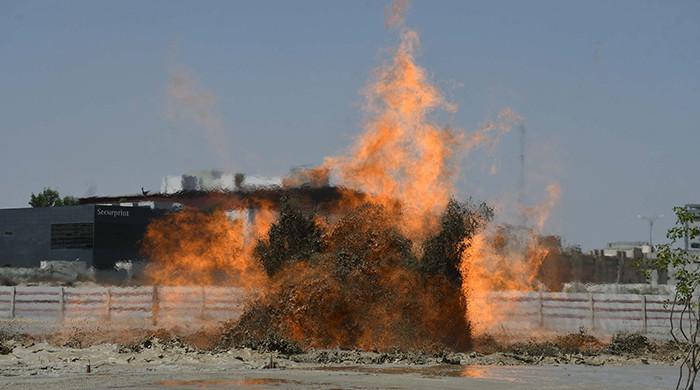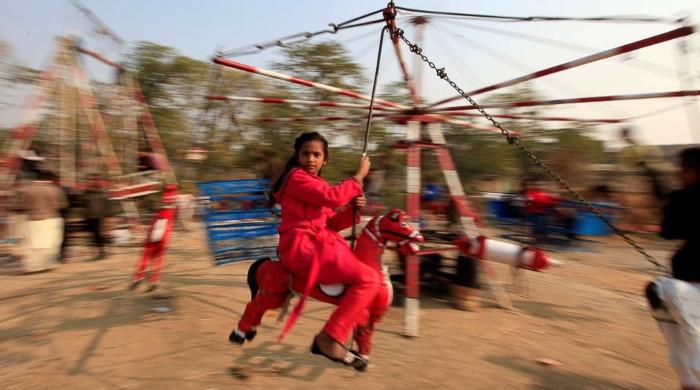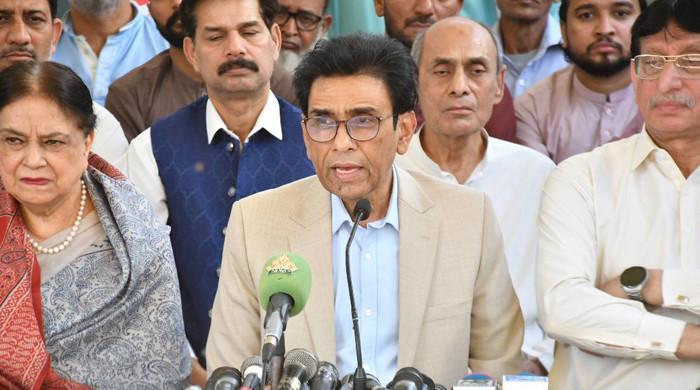Bunkers in Lower Kurram dismantled under peace agreement
Authorities vow peace pact enforcement as locals demand route reopening amid shortages of food, medicines
January 14, 2025

- Bunkers removed using explosives, aerial support by gunship copters.
- Police, security forces carry out joint operation for dismantling bunkers.
- Traders, doctors shut shops and hospitals in protest against shortages.
PARACHINAR: The bunkers in the Khar Kali and Balishkhel areas of the Lower Kurram have been demolished in the first phase of implementation of the agreement signed between the tribal elders of Kurram district to restore peace in the conflict-hit region, The News reported.
The local administration said that bunkers were removed using explosives and aerial support provided by the gunship helicopters during joint operations carried out by police and security forces.
These actions were taken in line with clause 12 of the 14-point of the Kohat peace agreement, which mandated the removal of bunkers in line with the Khyber Pakhtunkhwa apex committee's orders.
Meanwhile, the conditions in Parachinar remains dire in the wake of road closures. The travel routes in Kurram have been closed for over 100 days due to the security situation in the region following recent wave of violence, causing inconvenience to the residents.
Traders have shut their shops in protest as they are out of stock.
The locals have asked the government to reopen transportation routes immediately, saying that the continued road closure had created an acute shortage of food, medicines and other essential goods.
Social activist Mir Afzal Khan said that two weeks had passed since the signing of the peace agreement, but the main highway remained closed, compounding the problems of the residents of Upper Kurram.
He urged the government to take steps to reopen the roads to facilitate the local people. A tribal elder, Jalal Bangash, asked the government to implement all provisions of the peace agreement, which included steps to reopen roads and ensure safe passage for residents.
Meanwhile, doctors serving at the District Headquarters Hospital in Parachinar told a press conference that there was an acute shortage of medicines at the hospital.
The members of the Young Doctors Association, including Dr Zulfiqar Ali, Dr Qaiser, Dr Shehzad, Dr Rafiq, Dr Maqdad, Dr Iqbal and Dr Yawar Abbas said that the critically ill patients could not be taken to hospitals in Peshawar due to the closure of the roads.
“We have no medicines and cannot refer patients to Peshawar due to the road blockades,” Dr Zulfiqar said. Doctors said that essential medical supplies had run out and private hospitals in the area had been closed.
The doctors appealed to Unicef, the World Health Organisation and other national and international organisations to urgently intervene. They called for immediate action to open roads and restore the supply of food and medicines to the region.
District administration, however, assured that each and every provision of the peace agreement would be implemented under a devised strategy.
They said that another convoy carrying relief goods is also expected today (Tuesday).
The restive region has been in the spotlight for months now as the recent wave of tribal violence in the district took more than 130 lives and injured scores, before finally reaching an agreement to end hostilities earlier this month after around 50-day-long negotiations between tribal elders.
Both parties of the conflict, with assistance from the Grand Jirga, agreed to 14 points, among which was handing over private weapons to the government as well as dismantling of bunkers.
It was hoped that the agreement would hold as the violence forced the government to block the Tal-Parachinar Road, which led to the shortage of food, medicine, and other essential items in the district.
The decision to dismantle bunkers comes in the wake of a recent attack near the Balish Khel checkpoint, where gunfire was directed at a police armoured vehicle from a bunker. Though no casualties were reported, the incident underscored the risks posed by such structures in perpetuating conflict.
The dismantling of these fortifications is seen as a critical step toward sustaining peace in the region. Authorities believe the move will help prevent future clashes and foster better relations between tribal communities.





